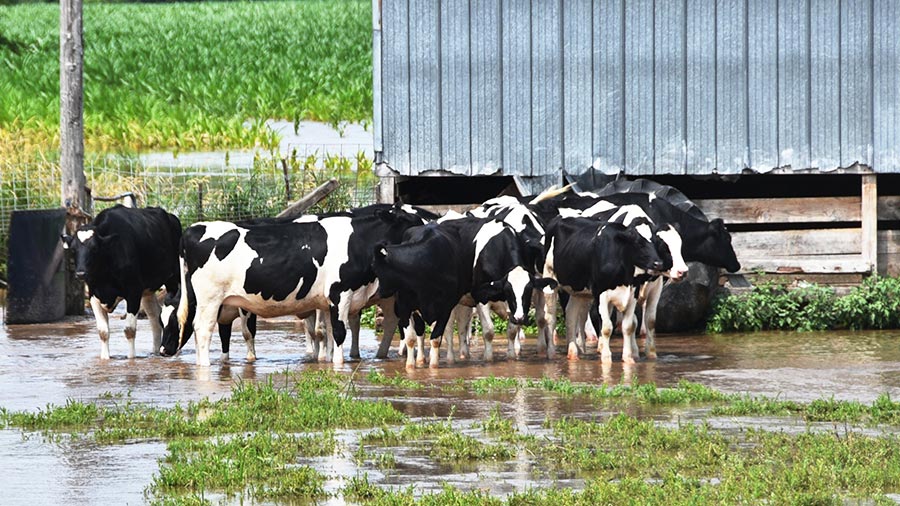Dairy survey reveals lack of preparedness as climate changes
 © StevertS/Adobe Stock
© StevertS/Adobe Stock Drought, high temperatures and flash flooding are the top three climate challenges for UK dairy farmers, according to a Kite Consulting survey.
Climate change is happening, and the consequences are being felt, said head of sustainability, Hayley Campbell-Gibbons, speaking at Dairy-Tech (7 February).
Dairy farmers therefore need to prepare their businesses for hotter, drier summers and wetter, stormy winters. “Build your environmental resilience,” she stressed.
“When we asked dairy farmers if climate change impacts presented a cost to them, 95% answered yes. But, worryingly, less than 50% have a plan in place to prepare for it,” she told the conference.
“Farmers need to think about what actions and investment they need to make to help protect their business.”
See also: Emerging livestock diseases – another unwanted climate change effect
Impacts on farm
Some 80% of the 150 farmers surveyed by Kite reported they were challenged by drought. High temperatures were felt by 60%, while 66% said they had seen heat stress in their livestock.
In addition, 40% reported flash flooding and more than 70% said they had experienced feed shortages.
Kite’s Emma McAvoy said that while many farmers were meeting slurry storage requirements on paper, intense rainfall meant that, in reality, they were falling short.
“Five months [of storage] really needs to be eight months to cope with intensive rainfall, especially on farms with a lot of concrete, which results in dirty water,” she said.
Reporting a survey of 850 farms and their slurry and silage capacity, Emma said that, on average, they needed to have 1.5 years’ worth of silage on hand and eight months of slurry storage in total to mitigate climate change.
“This means they need to invest the equivalent of more than 1.5p/litre over the next 10 years,” she pointed out.
Food security
The cost of environmental resilience, however, was not for farmers to bear alone, Hayley said.
She said the supply chain had a vested interest because anticipating the effect of climate change was fundamental to food security.
“For a long time, agriculture has been under the microscope regarding its contribution towards climate change, but it’s time to expand the conversation to include an understanding of the wider risks climate change poses to food production,” she said.
“But there is an obligation that goes beyond the farm gate. The whole dairy industry needs to consider, assess and fund mitigation of the climate impact and, ultimately, secure milk production and food security.”
